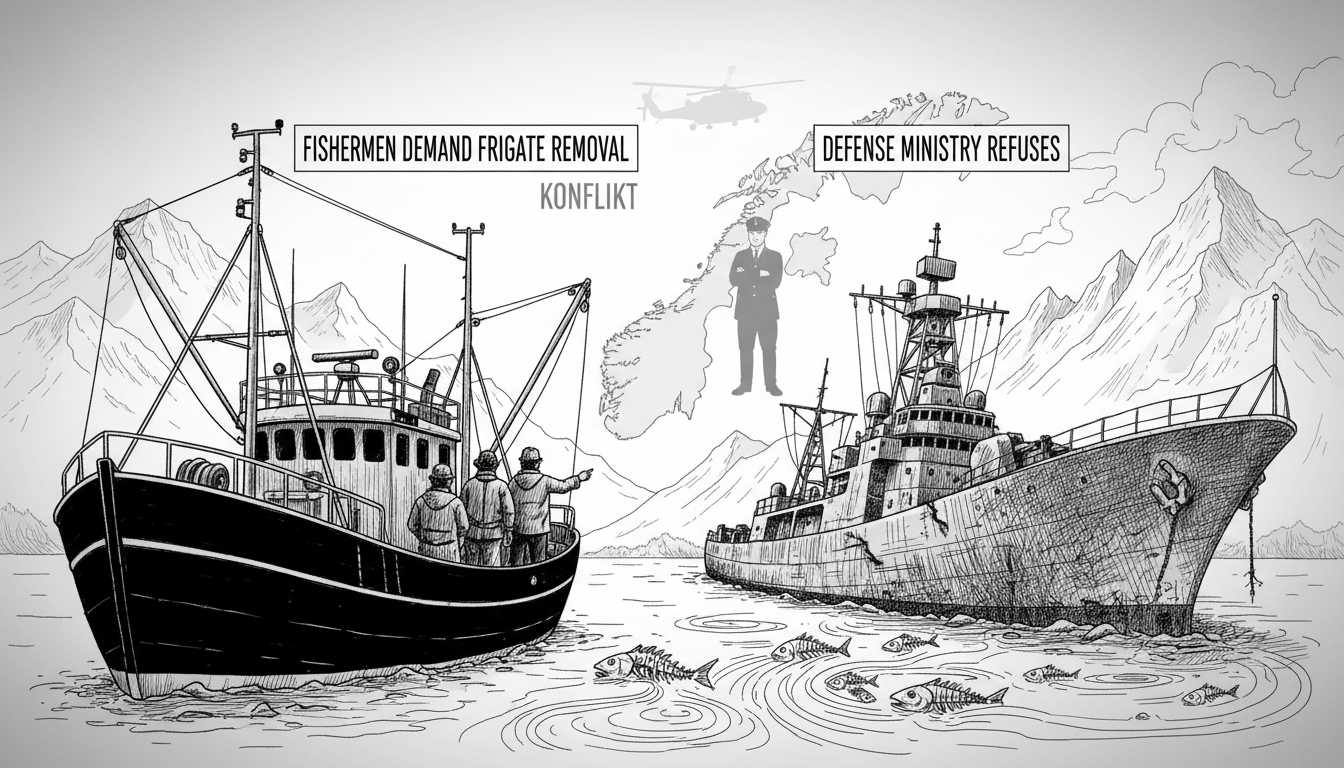The Norwegian fishing industry expresses deep disappointment with the Defense Ministry's refusal to relocate a sunken frigate from vital fishing grounds. Ask Økland, legal counsel for the Pelagic Association representing fishing interests, voiced frustration over the decision concerning the KNM Bergen. The decommissioned warship was deliberately sunk during military weapons testing at Svensgrunnen fishing grounds near Senja and Andøya.
Fishermen report the sunken vessel creates serious operational challenges at its 115-meter depth. Fishing boats must maintain extensive safety zones around the wreck due to strong currents and winds. Equipment becoming entangled with the submerged structure presents additional hazards. Økland emphasizes this situation effectively closes generations-old fishing territories to local fishermen.
Ghost fishing emerges as another concern when fishing gear snags on the wreck. The Defense Ministry defends its position by citing economic impracticality of moving the vessel. Officials note all harmful materials were removed before sinking and environmental certification was completed. Military representatives stress the importance of realistic training exercises requiring anchoring the target ship in waters no deeper than 125 meters.
This conflict highlights the ongoing tension between Norway's military needs and its historic fishing industry. The fishing sector acknowledges defense training requirements but questions why alternative locations weren't selected. The Pelagic Association now considers political action, potentially elevating the matter to Parliament which holds authority over the Defense Ministry.
Norway's coastal communities have long balanced defense interests with fishing rights. This incident recalls similar disputes where military exercises impacted commercial fishing operations. The situation demonstrates how limited suitable training areas create difficult choices for Norwegian authorities. Fishing organizations maintain that preserving productive fishing grounds remains crucial for coastal economies.
The Defense Ministry's environmental certification suggests proper protocols were followed. Yet the practical impact on fishermen's livelihoods cannot be overlooked. This case shows how even properly conducted military operations can create unintended consequences for traditional industries. The fishing industry's determination to continue fighting indicates this debate will likely continue in political arenas.

